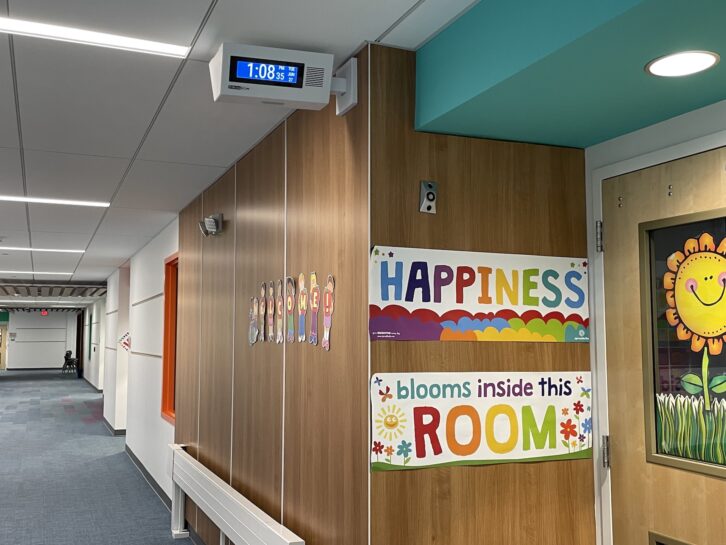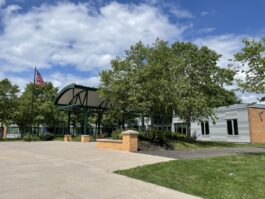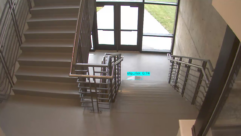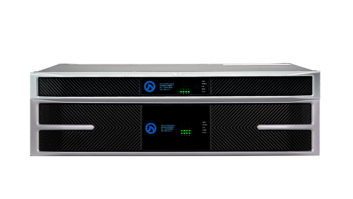
The North Syracuse Central School District (NSCSD), a K-12 public school district in Central New York state, serves the communities of North Syracuse, Clay, Cicero, Bridgeport, and Mattydale. With 11 elementary, middle, and high schools, the district covers almost 90 square miles and has 7,792 students and approximately 700 teachers. With some of its school buildings over 60 years old, the district needed to renovate many of them, some more urgently than others. As part of the process, district administrators and staff reevaluated all infrastructure elements and their approach to campus safety, selecting AtlasIED IPX technology to modernize their intercom, audio announcements, and emergency communications systems.
The district began renovating in phases, prioritizing schools based on the state of the school buildings and the level of urgency of repairs. Before renovations, the schools in the district used similar audio communications technologies that had been in use for 10-20 years, including the public address (PA) system, clocks, and blue light systems for emergencies. But the systems were siloed and did not integrate. During routine use, such as all-school announcements at the beginning of school days, the system functioned as needed, but during drills, the number of systems in operation caused the schools challenges.
“With the old system, when we conducted a lockdown drill, school staff needed to activate the different systems manually, which created steps and more possibilities for human error,” said Matt Erwin, Director of Facilities for North Syracuse Central Schools. Erwin manages maintenance and operations, plus security, health, and safety, and the capital work for the district.
The district had two primary goals when upgrading the campus audio and communications systems: to improve the audio quality and find a plan to increase the speed at which a school could react and contact first responders during an emergency. They wanted to achieve these goals without having to install a system that was too complicated for staff and personnel. Because the district used a Cisco phone system, Erwin and his team wanted a platform that integrated with these devices. As they researched and discussed options, their partners at Day Automation, a building automation and security solution provider, introduced them to AtlasIED, which they eventually chose as their long-term audio and communications solution. The AtlasIED IPX Series met all of the criteria for the district.
AtlasIED’s IPX Series features a range of communication endpoints that interconnect. The IPX endpoints integrate multiple functions into single products, including loudspeakers, two-way microphones, flashers, and an LED display for a clock, date, or other text-based messages that can be updated in real-time during an emergency.
Bear Road and Smith Road Elementary School Projects
Karl W. Saile Bear Road Elementary, known simply as Bear Road Elementary, became the district’s first school to install a new audio and communications system. Originally built in 1958, Bear Road Elementary was one of the district’s oldest buildings. During the Bear Road project, the school renovated half the building at a time to avoid a full closure and completely modernized the interior and infrastructure to accommodate staff and student needs. The team at Day Automation identified locations for IPX endpoints throughout the school and ran Ethernet cable to each site in preparation to connect the endpoints. The IPX endpoints are Power over Ethernet (PoE+)-enabled, receiving power and network signals through the same IT network the school uses to deliver Internet access. The IPX platform helped simplify the installation process for integrators by reducing the number of cable types needed.
Another NSCSD school, Smith Road Elementary, began its retrofit project in 2022 to update various technologies, including its audio and communications technology systems, and upgrade building infrastructure . Working around class schedules to avoid disrupting students, the school expanded and updated its campus IT network and created plans to locate IPX endpoints.
Once the construction teams pulled Ethernet cabling to predetermined locations in both schools, the contractor teams began installing IPX endpoints, including the dual-sided IP-DDS endpoint mounted from side walls and hung over high-traffic areas like hallways. They also added IP-SDMF indoor wall-mount endpoints in classrooms, the main office, the cafeterias, the gymnasiums, nurses office, and all rooms to ensure comprehensive building coverage. On the ceilings, the district installed the IP-8SM in multiple locations, which offer a loudspeaker and an omnidirectional microphone to allow two-way communication and monitoring from the speaker location to any PC or phone handset.

Mass Communications through Singlewire and IPX
The IPX Series also helped NSCSD incorporate campus safety capabilities with the help of InformaCast® Mass Notification Software from Singlewire®. Using InformaCast, during an emergency, designated school personnel can initiate the software from a mobile device wherever they are on or off campus. The software then instantaneously sends text messages to faculty, students, and parents’ mobile devices, alerts law enforcement, and activates attention-grabbing audio communication, flashing visual alerts, and LED text messages on the installed IPX devices throughout campus.
Also, using InformaCast, the IP-8SM ceiling speakers can be configured to allow first responders to communicate with people near the loudspeaker or listen in to that area. The speakers can be critically important when personnel, students, or perpetrators barricade themselves in classrooms or other rooms. When connected to InformaCast, the loudspeakers become a critical two-way hands-free communications tool for law enforcement or school personnel to deliver directions, provide or receive real-time updates near the speak location, or listen to activities within a space. The loudspeakers are especially important when staff, students, or perpetrators barricade themselves in classrooms or other rooms.
The district has implemented new routine and emergency safety procedures in the schools with InformaCast and IPX due to the upgraded capabilities offered by the technology. It has begun to train staff regularly to help them become more familiar with operating the equipment. Training staff for both routine operation and operating the system during an emergency when people are under much more stress has the potential to lead to human error. This is why automating the system using pre-recorded messages offered via InformCast can help reduce the chance of human error during a real incident. While the expectation is that much of the system’s use will be for routine daily announcements, InformaCast software helps automate many of the formerly manual steps in the older system’s procedures.
“Gone are the days when we had to find a panic button or go to a specific location to access the PA system,” said Erwin. “The new AtlasIED systems give us much more functionality at every point within the building. Based on the successful installation at Bear Road and Smith Road, we now look at mass notification across the entire district differently.”
What the Future Holds
From the district’s experience at Bear Road Elementary and Smith Road Elementary, it plans to install IPX and InformaCast throughout the rest of the district school buildings. As plans develop and ongoing training continues at the schools currently outfitted with IPX and InformaCast, Erwin and his team are eager for additional school buildings to use the new technology and create a better and safer experience district-wide for the students and staff moving forward.
IPX IP-DDS
IPX IP-SDMF
IPX IP-SEST-SD
IPX IP-8SM
IPX IP-STB
IPX IP-FEST-S
InformaCast Software









